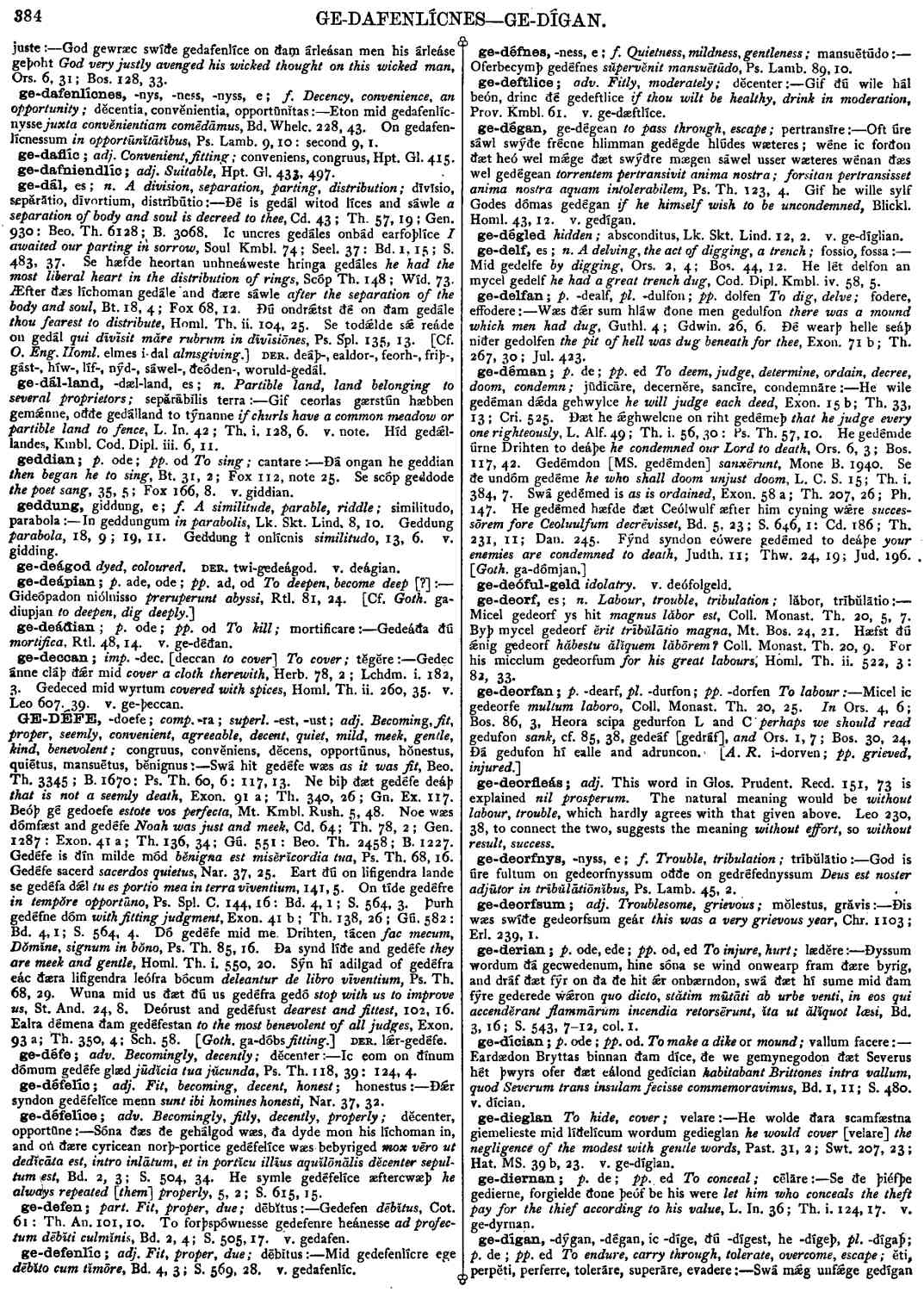ge-dígan
- verb [ weak ]
-
Swá mǽg unfǽge gedíganweán
so an undoomed [man] may escape calamity,
- Beo. Th. 4572 ;
- B. 2291 .
-
Ðú aldre gedígest
thou escapest with life,
- 1327 ;
- B. 661 .
-
He gedígeþ
he escapes,
- 606 ;
- B. 300 .
-
He feore gedígde
he escaped with life,
- 1161 ;
- B. 578 ,
-
Feore gedýged
escaped with life,
- Exon. 39 a; Th. 128, 21 ;
- Gú. 407 .
-
Ðæt wíf ne gedígþ hyre feore
the woman will not escape with her life,
- Nar. 50, 10 .
-
Ðara monna hit ǽlc gedígde
hominibus idem morsus non usque ad interitum nocebant,
- Nar. 16, 11 .
-
Sume hit ne gedýgdan mid ðam lífe
some did not escape with life,
- Chr. 978 ; Erl. 127, 12 .
Bosworth, Joseph. “ge-dígan.” In An Anglo-Saxon Dictionary Online, edited by Thomas Northcote Toller, Christ Sean, and Ondřej Tichy. Prague: Faculty of Arts, Charles University, 2014. https://bosworthtoller.com/14066.
Checked: 1